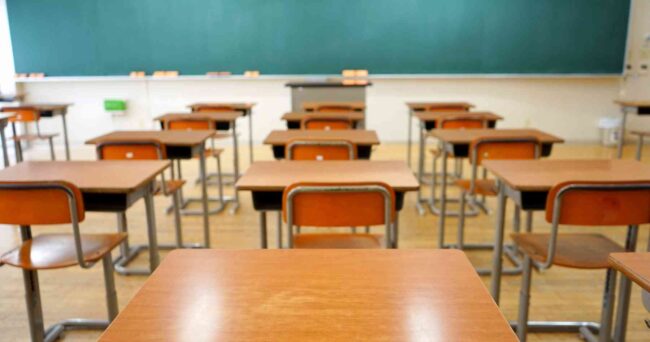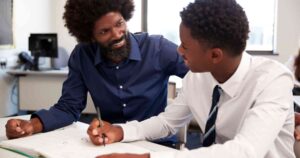In today’s fast-paced and ever-changing world, traditional education approaches might not cater to the unique needs and preferences of every individual. This is where personalized learning comes to the forefront. Personalized learning, as the name suggests, is an educational approach that tailors the learning experience to meet the specific needs of each learner. By harnessing the power of adaptive platforms and flexible pathways, personalized learning offers a more efficient, engaging, and effective way of learning. In this article, we will delve deep into the world of personalized learning, exploring its various aspects, benefits, and how it can shape your journey to success.
What is Personalized Learning?
Personalized learning is an educational strategy that recognizes the diverse strengths, weaknesses, interests, and goals of individual learners. It focuses on creating a learning environment that adapts to the unique needs of each student, allowing them to progress at their own pace and in their preferred style. Unlike traditional classroom settings, where one-size-fits-all teaching prevails, personalized learning emphasizes tailoring the educational experience to suit the learner’s requirements.
Benefits of Personalized Learning
-
Improved Learning Outcomes: Personalized learning allows students to concentrate on topics they find challenging while advancing quickly through material they grasp easily. As a result, they can achieve better learning outcomes and a deeper understanding of the subject matter.
-
Enhanced Student Engagement: When students have a say in their learning process, they become more engaged and motivated. By integrating their interests into the curriculum, personalized learning creates a sense of ownership over their education.
-
Flexibility and Independence: With personalized learning, students have the flexibility to choose the pace and time of their learning. This autonomy fosters a sense of responsibility and independence.
-
Targeted Support: Struggling students receive targeted interventions and additional support, while advanced learners can explore more challenging concepts, ensuring that no one is left behind.
-
Individualized Learning Paths: Each student’s learning path is unique, catering to their strengths, interests, and aspirations. This individualized approach fosters a deeper connection with the subject matter.
-
Better Time Management: Personalized learning enables students to manage their time effectively, leading to better time management skills.
How Does Personalized Learning Work?
At the core of personalized learning lies adaptive platforms and flexible pathways. Let’s explore how these two components come together to create a tailor-made educational experience.
Adaptive Platforms
Adaptive platforms utilize artificial intelligence and machine learning algorithms to assess a student’s learning progress continually. These platforms analyze data on a student’s strengths and weaknesses, learning speed, and preferred learning styles. Based on this analysis, the platform adapts the content and learning activities to meet the individual’s specific needs.
These adaptive platforms provide real-time feedback, guiding students on areas that require improvement and reinforcing concepts they have mastered. This constant feedback loop ensures that learners can progress at their own pace and overcome challenges effectively.
Flexible Pathways
Personalized learning offers a variety of pathways for students to achieve their educational goals. Traditional linear progression is replaced with flexible pathways that accommodate different learning preferences. Students can choose from a range of learning materials, formats, and assessments.
For instance, some students might excel in visual learning, while others prefer auditory or hands-on learning. With flexible pathways, students can opt for the learning style that suits them best, leading to a more enjoyable and effective learning experience.

Personalized Learning in Practice
The implementation of personalized learning varies across educational institutions and programs. Some common approaches include:
1. Personalized Learning Plans (PLPs)
Institutions may create individualized learning plans for each student based on their learning goals, strengths, and areas for improvement. These plans outline the learning objectives, resources, and assessments tailored to the student’s needs.
2. Competency-Based Learning
Competency-based learning focuses on mastering specific skills or competencies rather than completing a set curriculum within a fixed timeframe. Students progress to more challenging material only after demonstrating mastery of the current content.
3. Project-Based Learning
In project-based learning, students tackle real-world problems and challenges, applying their knowledge to create solutions. This approach fosters critical thinking, problem-solving, and collaboration skills.
4. Blended Learning
Blended learning combines traditional classroom instruction with online learning elements. Students have the flexibility to engage with digital content and resources, complementing face-to-face interactions with teachers.
FAQs (Frequently Asked Questions)
What is the Role of Teachers in Personalized Learning?
In personalized learning environments, teachers act as facilitators and mentors rather than just dispensers of knowledge. They guide students, monitor their progress, and provide targeted support when needed.
Can Personalized Learning Be Applied to All Subjects?
Yes, personalized learning can be applied to various subjects across different levels of education. Its adaptability allows it to be effective in subjects ranging from mathematics to humanities.
How Does Technology Facilitate Personalized Learning?
Technology plays a crucial role in personalized learning by providing adaptive platforms, interactive learning tools, and access to a vast array of educational resources.
Is Personalized Learning Suitable for Every Student?
While personalized learning benefits many students, it might not be the best fit for everyone. Some learners might thrive in more structured environments.
Does Personalized Learning Replace Traditional Education?
Personalized learning complements traditional education approaches, providing an alternative for students who require a more individualized approach.
What Impact Does Personalized Learning Have on Student Motivation?
Personalized learning enhances student motivation as they have a greater sense of ownership and autonomy over their learning journey.
In conclusion, Personalized Learning: Tailored Education for You is a dynamic and adaptive approach to education that celebrates individuality and caters to diverse learning needs. By leveraging the power of adaptive platforms and flexible pathways, personalized learning empowers students to take charge of their education, leading to improved learning outcomes and heightened motivation. As technology continues to evolve, the potential for personalized learning to revolutionize the educational landscape grows exponentially. Embracing this innovative approach can unlock the full potential of each student, guiding them on the path to success.


